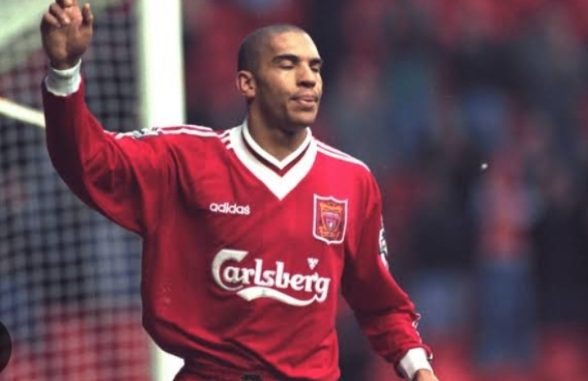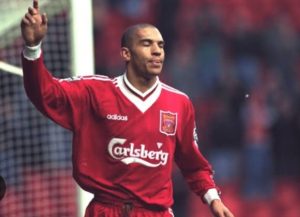
Stan Collymore has admitted he made the wrong decision to leave Liverpool for boyhood club Aston Villa in 1997.

The now 52-year-old had formed a deadly partnership in attack with Robbie Fowler during his two-year stay at Anfield, though completed a move to the West Midlands to sign for a club close to his heart.
Over the course of his spell on Merseyside, Collymore scored a total of 35 goals and registered 16 assists in 85 appearances, though was eventually ousted after the emergence of Michael Owen.
A testing relationship with manager Roy Evans resulted in Collymore leaving Liverpool after only two seasons, a switch he has now recognised was unwise.
Asked on social media to explain his exit, he responded: “Two reasons. Michael Owen coming through at the same time Villa wanted me. All I ever wanted to do as a kid was play for Villa. At Anfield after a European game, my agent (Paul Stretford) came and said 3 words. ‘Villa want you’ and that was that. P*** poor career move because every move from Liverpool is arguably down, but I had to play for my club. Simple.”
Expanding on his ability to operate in multiple positions across the attack, Collymore added: “I was a striker until I went to Palace aged 19. They saw me as a left winger so I played there. Went to Southend as a striker and that’s where I stayed, but at Liverpool I knew Fowler would always outscore me in the box, so often went wide, knowing what strikers wanted and where they wanted it! So it worked!”
During his first season with the Reds, Collymore scored a combined 55 goals with Fowler as the pair helped fire the Reds into title contention. His standout moment in a Liverpool shirt arrived towards the end of the 1995/96 campaign, scoring the winning goal in a dramatic 4-3 home win over Newcastle United that remains an iconic Premier League moment.
Liverpool would end the season in fourth place and there was further disappointment to come that year as defeat to Manchester United in the FA Cup final arrived in May 1996, Eric Cantona scoring the game’s only goal
Leave a Reply